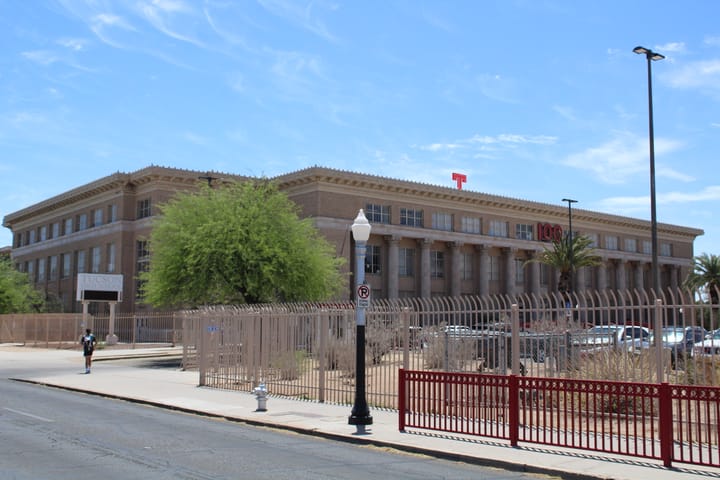TUSD moves forward with climate action plan after funding vote
The Tucson Unified School District voted to fund a student-written Climate Action Plan—hailed as the most comprehensive in the nation—that aims to make its schools net-zero and fully sustainable by 2040.

In a landmark move, the Tucson Unified School District governing board voted Tuesday to fund the creation of a student-written Climate Action Plan aimed at transforming schools into models of sustainability.
The plan has been called the most comprehensive in the nation, with goals that include cutting emissions in half by 2030 and reaching net-zero by 2040. The governing board approved the plan in October, but Tuesday’s 4-1 vote in support of funding the plan makes it official.
The plan, written by the Arizona Youth Climate Coalition, outlines ways to make Tucson’s schools more environmentally friendly. It includes guidelines for cutting emissions by 50% by 2030; achieving net-zero emissions and zero waste by 2040; converting to 100% clean energy by 2035; and implementing climate curriculum, resiliency, adaptation and LEED certification for green buildings.
During Tuesday’s meeting, the board discussed spending up to $250,000 for a consultant to create an ongoing plan that will address greenhouse gas emissions, waste, electricity use and other factors to make the district more sustainable.
“Funding the development of a climate action plan will not only safeguard students’ future, but also help TUSD balance its budget,” said Ojas Sanghi, a University of Arizona student and co-lead for the coalition.
Net-zero schools cost less to build and maintain, which can help TUSD save millions in operating costs, according to supporters of the plan.
Additionally, students perform at least 20% better on tests in schools with better ventilation, natural light, low indoor CO2 levels and quiet HVAC systems, Sanghi said, citing studies published by Virginia Tech and Harvard.
“This is all in TUSD’s grasp. All we need to do is make a plan to attain it,” he said.

Board member Val Romero, who voted against moving forward with the plan, said he found it hard to vote to spend $250,000 on a consultant for a program that will cost more than $100 million to implement, especially when the funds are coming out of the district’s maintenance and operations budget.
“I feel, responsibly, we should be looking at these grants and other funding to spend the money for this consultant,” Romero said. “I don’t have a problem with the consultant, I have a problem with where the money is coming from.”
Currently, the district spends about $24 million per year on utilities and less than $600,000 on fuel for its fleet of buses, according to Tina Cook, energy manager for the district, and Chief Financial Officer Ricky Hernandez.
“In a nutshell, we’re looking at a plan … that’s going to tell us what we need to do within a certain time frame in order to be a net-zero school district,” Cook said.
Phil Berry, director of sustainability for Pima Community College, spoke during the meeting, saying that a failure to incorporate climate action and an understanding of climate change into students’ education will result in the district failing students in a dramatic way.
“You’re not being overcharged for this,” Berry said. “It’s important to have a plan that is tangible in programs that are implementable in your budget and implementable across time.”
Officials said that in the long run, spending $250,000 now will lead to the district spending less money to keep Tucson schools operating.
“If we could save 1% of our utility costs with higher efficiency and better insulation and other things, that would pay for this consultant in one year,” said board member Dr. Ravi Shah.
He said his expectation for the plan is twofold: to minimize the district’s effect on the environment and find a way to do it while saving costs.
“I believe you need to start off with a plan in order to put you on a good road map to where you want to go in the future,” Cook said. “And I believe that this is the way to do it.”
The implementation process will take about 18 months and involve a multi-step approach that includes meeting with stakeholders, gathering and comparing data, and reviewing decarbonization and the district’s greenhouse gas report to create an ongoing plan that meets the district’s needs.
Arilynn Hyatt is a journalism major at the University of Arizona and Tucson Spotlight intern. Contact her at [email protected].
Tucson Spotlight is a community-based newsroom that provides paid opportunities for students and rising journalists in Southern Arizona. Please support our work with a paid subscription.




